FAITH AND REASON IN
KIERKEGAARD
F. Russell Sullivan, Jr.

Copyright 2010 by
University Press of America, Inc.
4501 Forbes Boulevard
Suite 200
Lanham, Maryland 20706
UPA Acquisitions Department (301) 459-3366
Estover Road
Plymouth PL6 7PY
United Kingdom
All rights reserved
Printed in the United States of America
British Library Cataloging in Publication Information Available
Library of Congress Control Number: 2009936277
ISBN: 978-0-7618-4934-6 (paperback : alk. paper)
eISBN: 978-0-7618-4935-3
 The paper used in this publication meets the minimum requirements of American National Standard for Information SciencesPermanence of Paper for Printed Library Materials, ANSI Z39.48-1992
The paper used in this publication meets the minimum requirements of American National Standard for Information SciencesPermanence of Paper for Printed Library Materials, ANSI Z39.48-1992
For
JUDITH ANN
ACKNOWLEDGEMENTS
My interest in Kierkegaard grew out of a long standing conviction that he was not a wild-eyed advocate of the absurdity of faith, and that criticisms of him as such from respected philosophical sources did not stand up under a careful and scholarly analysis of his works. I am indebted to Professor Bernard Elevitch of the philosophy department at Boston University who extended himself on my behalf at a very trying and crucial stage of his professional career. His efforts were invaluable in the difficult task that beset me: to show that such an unorthodox pleader of the Christian faith is, in reality, writing (albeit implicibly) to delineate how the movement of faith is a reasonable one. My deep appreciation also to Professors John Lavely, Nancy Lewis, Roger Richards and Sheila Shively for their support.
Finally, words are inadequate to express the feelings of indebtedness to my wife, Judith Ann. Since I began my career in Philosophy in 1966, she has been a constant source of support. During this period, three of our sons were born. The nature of that support has been given added meaning in that, despite the loss of two of our sons, her devotion and steadfastness did not diminish. It is primarily to her I dedicate this work.
INTRODUCTION
The purpose of this work is to clarify Kierkegaards use of reason in the act of faith and to distinguish the special sense of reason that must be understood to appreciate fully Kierkegaards purpose in writing. I hope to show that Kierkegaard does not denigrate every use of reason in the act of faith; in actuality he sees faith as a reasonable enterprise based on the human predicament. As we shall see, it is Kierkegaards intent to persuade those whom he considers nominal Christians (because they appreciate only the doctrinal value of faith) to appreciate faith as a viable alternative to the spiritless condition that Kierkegaard feels permeates their lives. His aim is to present Christianity in a new light to those of his age. An authentic movement of faith is the result of individual self-awareness (sin). Only then can faith be assessed as the reasonable act of choosing Christ rather than the continuation of an inauthentic mode of existing (sin). The reasonableness of faith consists in nominal Christians evisaging it as a prudential choice, rather than as the result of understanding the historical and doctrinal aspects of Christianity. In truth, Kierkegaard sees the latter as secondary. Faith is, in this sense, not the result of a logical argument which supports the fact of the God-man in history. For Kierkegaard, no argument pro or contra can be convincing in this regard. Faith, then, is alogical on the doctrinal level. The fact of the Incarnation cannot be comprehended as true or false by means of logical argumentation. Although reason recognizes its own limitations, it is confronted with the evidence of sin and the Christian message, which essentially is a dialogue between Christ and man concerning this spiritual condition. Faith, then, is not just a reasonable wager in the Pascalian sense. Reason points to faith as a possible answer to mans predicament despite its limitations in reaching logical certainty concerning the doctrines of faith. Therefore, on the more important level, that of encountering and opting for Christianity once a true assessment of self is made, faith is a reasonable undertaking, though not a logical one in the above sense.
To support my view that Kierkegaards view of Christian faith is reasonable, I must distinguish the disparate purposes of Kierkegaards aesthetic (pseudonymous) writings and his non-aesthetic ones ().
Kierkegaard hopes that introspective evidence will lead individuals to an awareness of sin. For Kierkegaard, man is not only in sin; he is dominated by it; man can do nothing about his inauthentic state. Though Christians have an appreciation of the doctrinal value of Christianity, any viable faith must have as a necessary condition their individual awareness of sin; this is gained only by seeing that authentic Christianity begins with introspection and its resultant insights. Kierkegaard sees that only by having nominal Christians view Christianity as alogical in nature on the doctrinal level and themselves as inauthentic (dominated by sin) can they begin to will a change in their beings. Through his aesthetic and psychological works, Kierkegaard hopes to have shown that there is no logical or existential avenue to authenticity. Neither mans understanding of the tenets of faith nor his own unaided willed action can effect a change in his inauthentic state.
In my analysis of some of Kierkegaards religious works (), I shall present evidence of Kierkegaards envisaging Christianity as just this reasonable alternative to mans existential and logical predicament. Although logic fails and he himself can do nothing concerning his state, the nominal Christian has the opportunity to will a change in his being by opting for the escape that Christianity offers. The Incarnation cannot be defended on logical grounds, but faith in Christ as a possible remedy for the sinful nature of man and as the only viable alternative for those Christians of his day is reasonable.
Kierkegaards unique notion of subjectivity is now seen as an effective tool in his attempt to have the Christians of his day view faith as a reasonable undertaking (of the ethical life, but is only hopeful of having nominal Christians begin the introspective movement so that the reasonable aspect of faith can be gleaned by such individuals.
My conclusion () is an explication of Kierkegaards assessment of faith as reasonable, which evolves from my analysis in the first four chapters. It is important to stress the fact that Kierkegaard is not interested in advancing the truth of Christianity vis--vis any other faith. He is writing only for those nominal Christians who have at least a modicum of appreciation of Christian doctrine. Kierkegaard sees Christian faith as a risk, but he is attempting to make his readers see that risk as a calculated one. Christian truth, of which Kierkegaard is convinced, must initially be won by an act that has only the motivation of a potential cure for the spiritual crisis at hand. But Kierkegaard thinks this is enough. His purpose in writing is to afford those existents who have come to terms with their spiritual condition an opportunity to see Christ as a possible Healer, and to will accordingly.
Kierkegaards justification of faith in Christ is one that consists of two exclusive alternatives for the individuals whom he hopes to have drawn to an awareness of their spiritual plight. A confrontation with these two options--the possible discovery of authentic selfhood through the leap of faith as opposed to the continuation of ones inauthentic state of being--is the aim of Kierkegaards explication of the notions of the paradoxical nature of faith, dread, despair and subjectivity.


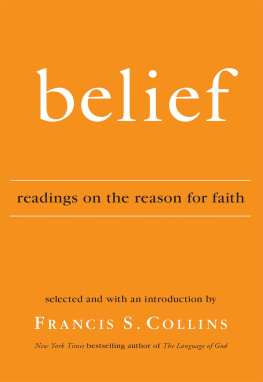

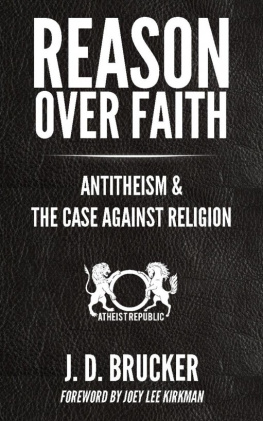

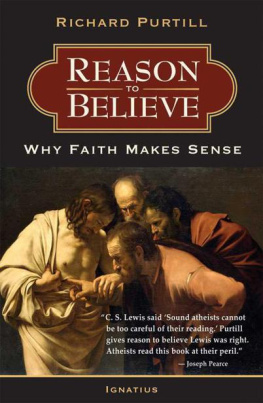
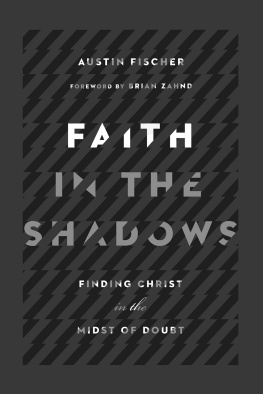
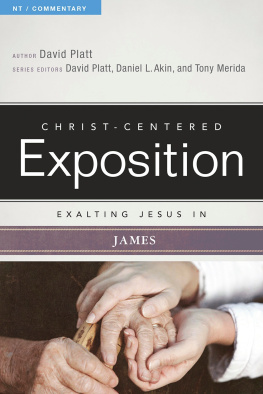
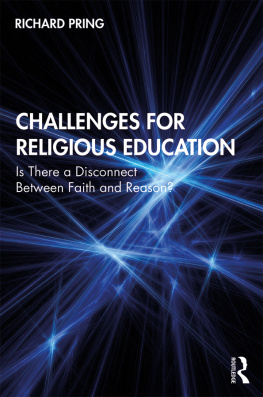

 The paper used in this publication meets the minimum requirements of American National Standard for Information SciencesPermanence of Paper for Printed Library Materials, ANSI Z39.48-1992
The paper used in this publication meets the minimum requirements of American National Standard for Information SciencesPermanence of Paper for Printed Library Materials, ANSI Z39.48-1992